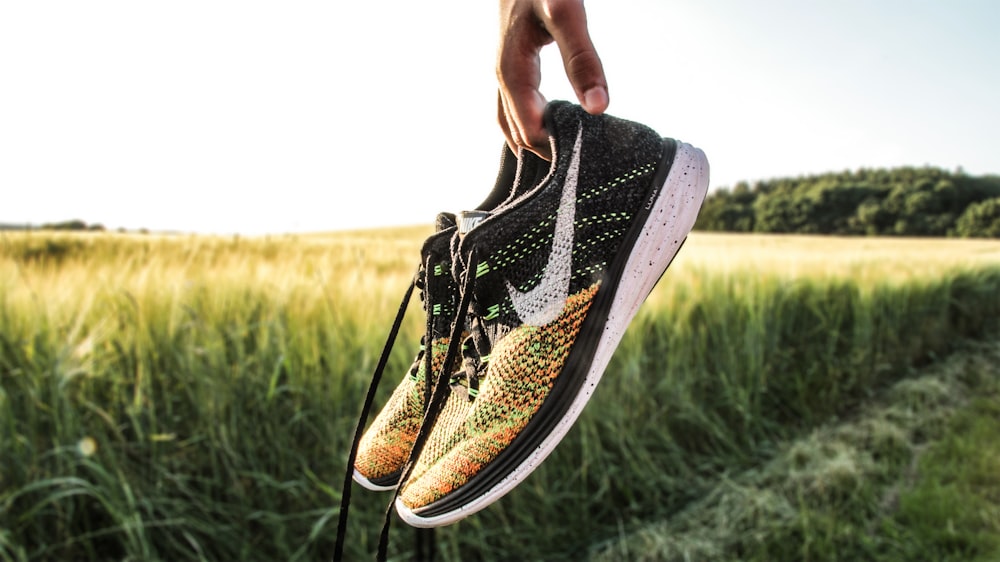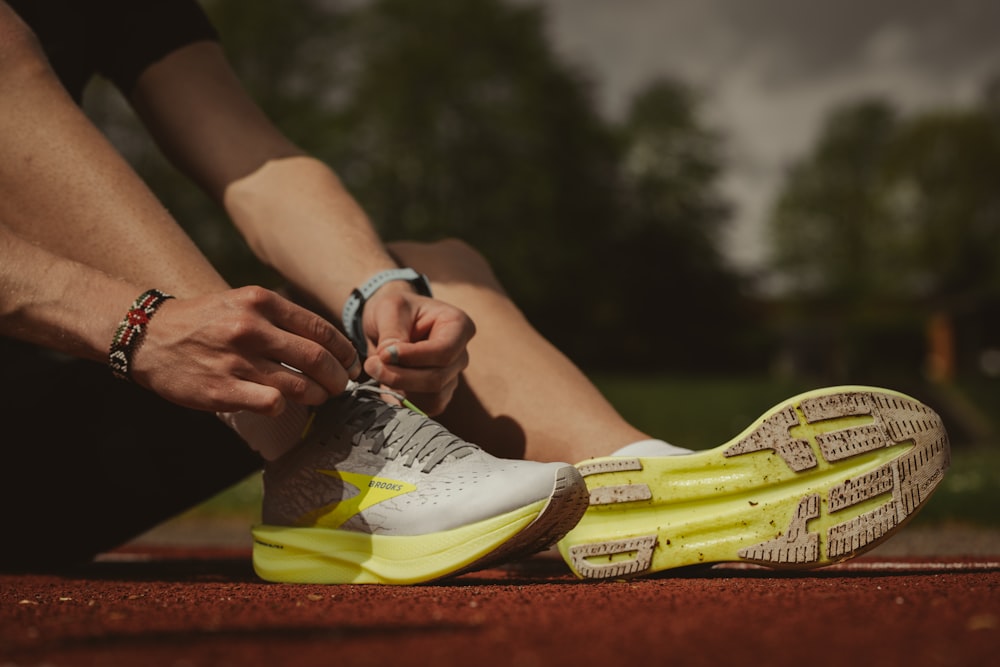
The tread on your running shoes is starting to wear thin
The average lifespan of a running shoe is around 300 to 500 miles, and the tread is usually the first part of the shoe to show wear and tear. If you've been noticing that your shoes are starting to look a bit worn, it's important to take some steps to extend their life. First, make sure that you're clean- ing your shoes regularly. This will help to remove any dirt or debris that could speed up the wear and tear process. You should also store your shoes in a cool, dry place when you're not using them. Exposing them to extreme temperatures can cause the material to break down more quickly. Finally, be sure to rotate between two or three pairs of shoes so that each pair has time to recover between runs. By following these simple tips, you can help your shoes last longer and keep your feet happy and healthy.
Your running shoes are no longer providing the support you need
As any runner knows, a good pair of shoes is essential for a successful workout. Shoes provide support and cushioning for your feet, helping you to avoid injuries and stay comfortable as you run. However, shoes don't last forever. Over time, the material begins to break down, losing its ability to provide support. Additionally, dirt and grime can build up in the shoes, making them uncomfortable and causing additional wear and tear. When your running shoes no longer feel supportive, it's time to clean them out and invest in a new pair. Most experts recommend replacing your shoes every 300-500 miles, so be sure to keep track of how often you're using them. With proper care, you can extend the life of your shoes and ensure that they continue to provide the support you need.
You're getting more blisters and other foot injuries since you started using your running shoes
If you've started to notice more blisters and other foot injuries since you began using your running shoes, it may be time to take a closer look at how you're caring for them. Even the best quality shoes won't last forever, but there are some things you can do to extend their life and keep your feet healthy in the process. Start by keeping your shoes clean - both inside and out. Remove any dirt or debris after each run, and consider investing in a shoe insert to keep your feet dry and comfortable. It's also important to store your shoes properly - in a cool, dry place away from direct sunlight. By taking care of your shoes, you can help ensure that they'll provide miles of comfortable running for years to come.
Your running shoes are starting to look old and faded
Worn-out running shoes are not only unattractive, but they can also be dangerous. old shoes can reduce traction, leading to slips and falls, and they can also cause blisters and other injuries. If you're planning to continue running, it's important to keep your shoes clean and in good condition.
You've been using the same pair of running shoes for over six months
If you're a runner, you know how important it is to have a good pair of shoes. Not only do they provide support and cushioning for your feet, but they also help to protect your joints from impact. However, even the best shoes will only last for about six months before they need to be replaced. After that, the cushioning starts to break down and the shoes no longer provide adequate support. This can lead to injuries, so it's important to be aware of the signs that your shoes are nearing the end of their life. Look for wear patterns on the soles, or cracks and holes in the leather or fabric. If you notice any of these signs, it's time to clean out your closet and head to the store for a new pair. With a little care and attention, you can make your running shoes last longer and keep yourself safe on the roads.
If you are looking for men's or women's running shoes, check out the range at Sneaker Direct today.
FAQ
How do I know when to replace my running shoes?
Almost every runner will have to replace their shoes at some point, but it can be difficult to know when it's time for a new pair. There are a few general guidelines that can help. First, take a close look at your shoes after a run. If they're covered in dirt and debris, it's time for a cleaning. This not only helps to prolong the life of your shoes, but also helps to prevent infection.
Next, consider how often you wear your shoes. If you're running multiple times per week, you may need to replace your shoes every six months or so. However, if you only run occasionally, you may be able to get away with replacing them once a year. Finally, think about how your shoes feel when you run. If they're uncomfortable or constricting, it may be time for a new pair.
How long should running shoes last?
A common question asked by runners is: how long should my running shoes last? The answer to this question depends on a few factors, including the quality of the shoe, your running surface, and how well you care for your shoes.
In general, though, you can expect a good pair of running shoes to last between 300 and 500 miles. Of course, this is just a general guideline - some shoes may wear out sooner, while others may last longer.
To get the most out of your running shoes, it's important to clean them after each use and store them in a cool, dry place. Additionally, it's a good idea to rotate between two or three pairs of shoes to give each pair time to recover between runs.
How often should you buy new running shoes?
As any runner knows, a good pair of shoes can make all the difference when it comes to comfort and performance. But how often should you buy new shoes? The answer depends on a number of factors, including how often you run, the type of shoes you wear, and how well you take care of your shoes.
Generally speaking, most runners need to replace their shoes every 300 to 500 miles. However, if you only run a few times per week, you might be able to get by with replacing your shoes every 600 to 800 miles.
Of course, if you notice that your shoes are starting to feel uncomfortable or look worn out before they reach the end of their lifespan, it's time for a new pair.
In addition to keeping track of how many miles you've run in your shoes, it's also important to clean and store them properly. Be sure to clean off any mud or dirt after each run, and allow them to dry completely before putting them away. You can also extend the life of your shoes by alternating between two or more pairs so that they have a chance to air out between runs.


